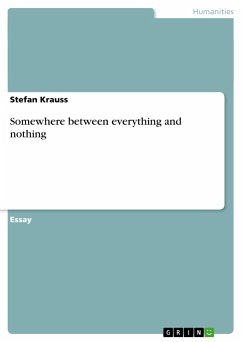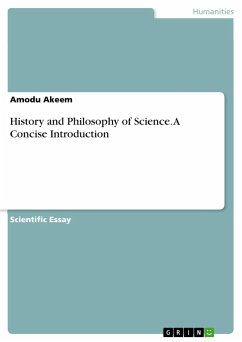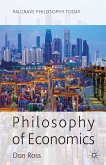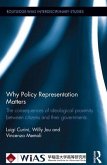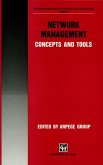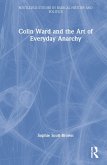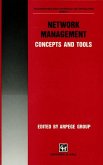Essay from the year 2004 in the subject Philosophy - Miscellaneous, grade: distinction+, Murdoch University (Institute for Sustainability and Technology Policy), course: Policy, Technology, Democracy, language: English, abstract: Formatting the statement: How to deal with If-QuestionsThe statement "Sustainability can be achieved by developing smarter technologies" can be seen as an affirmative answer to the following question: [1] If: Sustainability can be achieved by developing smarter technologies? If- or respectively decision-demanding-questions allow two possibilities to answer: an affirmative and a negative one. Someone who wants to claim the proposition of the question is obliged to give a proof. Someone who wants to dispute the proposition of the question is obliged to give a refutation. To identify what such a proof or rather a refutation has to contain, it is helpful to note down the question again to show the logical structure more clearly: Is it the case, that[1'] If developing smarter technologies then Sustainability can be achieved? Obviously it concerns an implication clause, which demands further propositions that allow the transition from the antecedent to the succedent. A tautological transition can be constructed neither taking any scientific 'proofs' into consideration, nor making any vague prognoses. Only the arbitrary meaning of the term 'smart' has to be fixed in a goal-directed way: [2] A technology is smart i f f1 it meets the needs of the present without compromising the ability of future generations to meet their own needs. Making use of the rule of complete substitution of the definiendum and the definiens we get a tautology by putting line [2] in line [1'] and taking the Brundland definition for Sustainability. Someone who accepts the definition [2] and the Brundland one is forced to agree with the statement simply because of locical reasons (? 6). This finding, indeed, leaves one unsatisfied. Thus, further investigations have to be undertaken. Although explications are often given by scientists, it seems to me particulary characteristic of philosophical work that a great part of it is devoted to proposing and discussing explications of certain basic general concepts.
Hinweis: Dieser Artikel kann nur an eine deutsche Lieferadresse ausgeliefert werden.
Hinweis: Dieser Artikel kann nur an eine deutsche Lieferadresse ausgeliefert werden.

